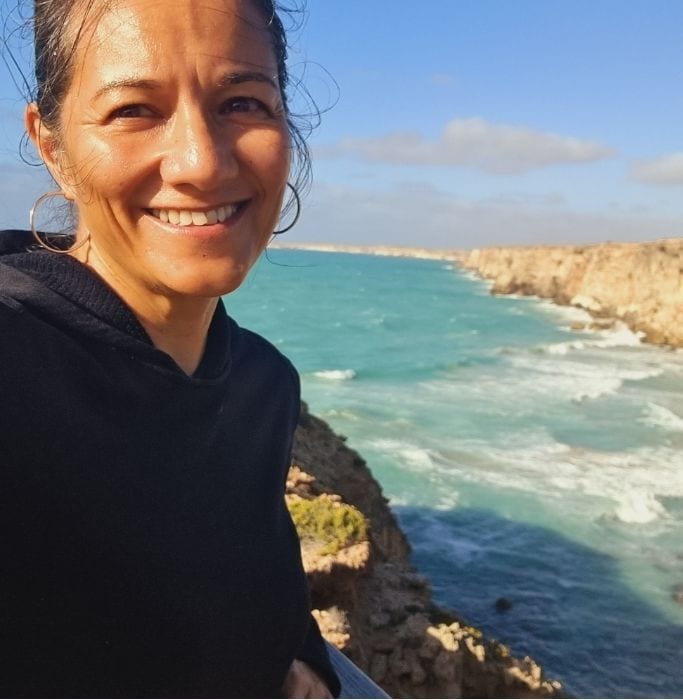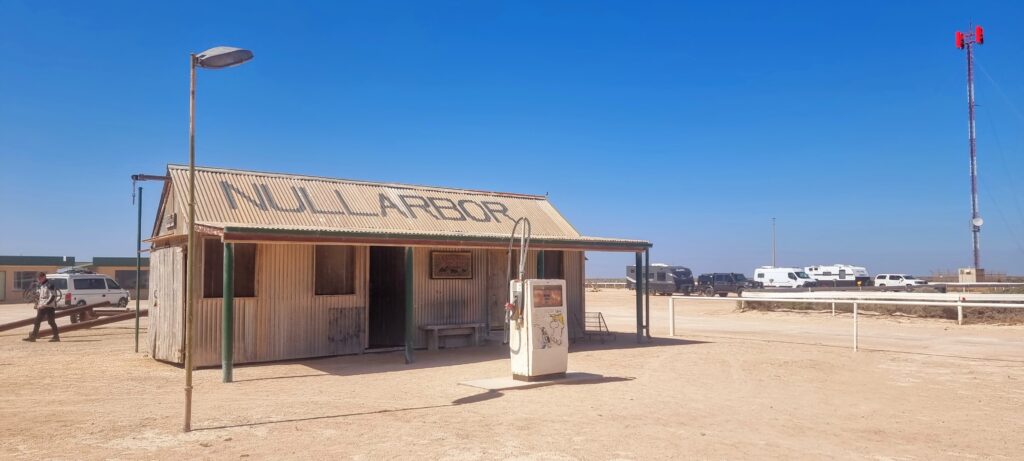
If you are traveling the Nullarbor in 2025 then this is for you. The Nullarbor journey from Norseman in Western Australia to Ceduna in South Australia is more than just a road trip—it’s an iconic rite of passage for adventurers and a bucket-list experience for many Aussies. I tackled this unforgettable drive along the Eyre Highway again in November 2024 in my trusty 4×4. While a 4×4 suits my style, it’s worth noting that a sedan or van is perfectly fine too, as the roads are fully sealed. This was my second time crossing the Nullarbor, and though it wasn’t my first rodeo, the journey was just as captivating as the first.
Stretching over 1,200 kilometers, “doing the Nullarbor” is an outback adventure like no other. Along the way, you’ll pass stunning landscapes, visit quirky roadhouses, and feel a solitude that’s both grounding and inspiring. It’s a trip that lets you take in the raw beauty of the Aussie outback, giving you time to reflect, recharge, and enjoy the simple joys of life on the road.
If this is your first Outback adventure check-out my 10 Road Trip Basics for Outback Australia and 10 Road Trip Travel Hacks for Outback Australia.
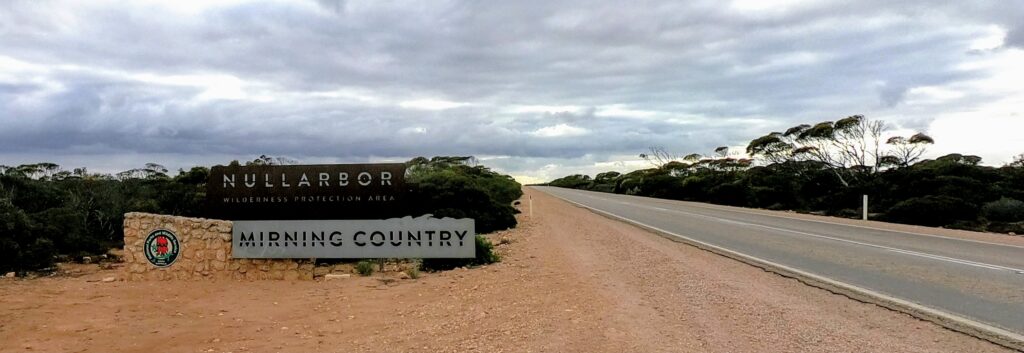
In this post, I’ll share everything you need to plan your adventure, including tips on accommodation, fuel stops, rest stops, and staying safe along the way.
Traveling the Nullarbor in 2025: What is the best time?
If you’re craving a once-in-a-lifetime adventure, the Nullarbor won’t let you down. Timing your trip is key to getting the most out of the experience. Whale-watching season runs from May to October, with Southern Whales putting on incredible displays near the Head of Bight. If you want to coincide your trip with some of the things going on in the State you are heading to or from check out my post Crossing the Nullarbor: How to Choose the Perfect Time for Your Adventure to ensure you don’t miss out.
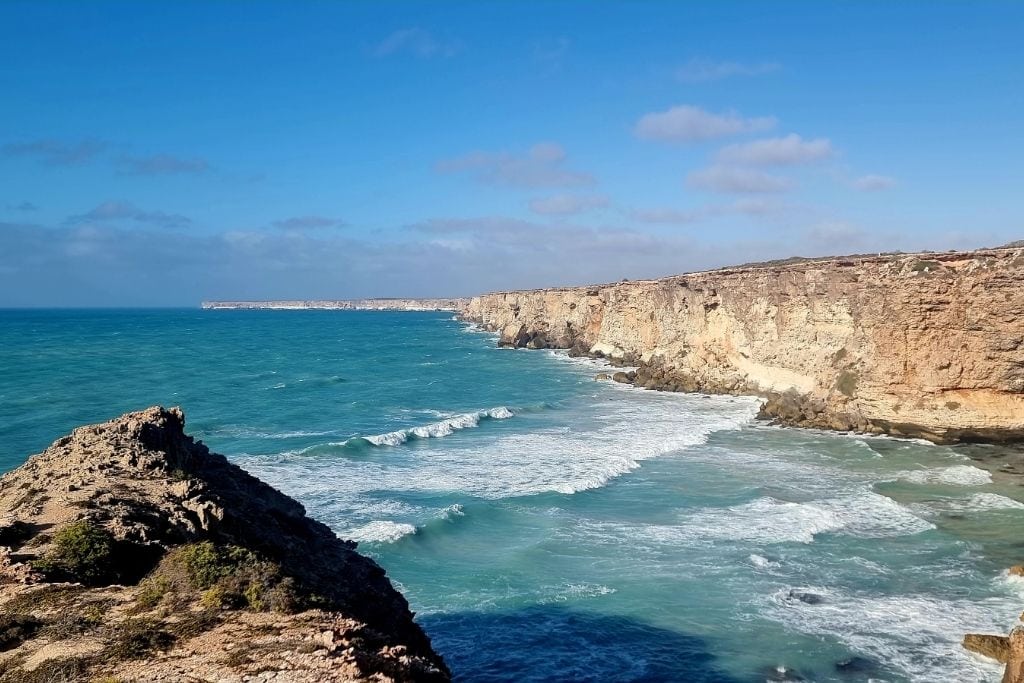
For milder weather, late autumn to spring (April to October) is ideal, as the summer months can be extremely hot and challenging. My own experience in November 2024 caught me by surprise—it was unexpectedly chilly. On a previous trip in late December, I traveled together with a friend. Well, I say “together,” but she was 2-3 days ahead of me as we both made our way from the East Coast to beautiful Dunsborough in the West. While her photos show sunny days in t-shirts and shorts, mine feature sweaters and windswept hair. That trip brought a southerly blast from Antarctica, making it extraordinarily windy and cold. Despite the unexpected weather, it was still an amazing journey.
Accommodation Options Along the Nullarbor
Camping Sites and Caravan Parks
Camping is a popular and practical choice along the Nullarbor, with most options located at roadhouses. I camped at the Belladonia Roadhouse this time around. The facilities were clean, but the $50 price tag for an unpowered tent site was the most expensive on the trip. There are plenty of places to freedom camp and some basic motel rooms if you book in advance. Border Village, on the other hand, started at a $18 per site. While roadhouse campsites and accommodations can be costly, it’s important to remember that these remote locations rely on desalinated water and self-generated energy to ensure your stay is enjoyable. So manage your expectations. You are getting hot showers and drinking water in one of the remotest parts of Australia. That’s cool. Check out The Ultimate Guide to Traveling Australia on a Budget
It was freezing, when I went in November. Now freezing for me is between 11-15 degrees celsius. So remember to bring warm clothes!
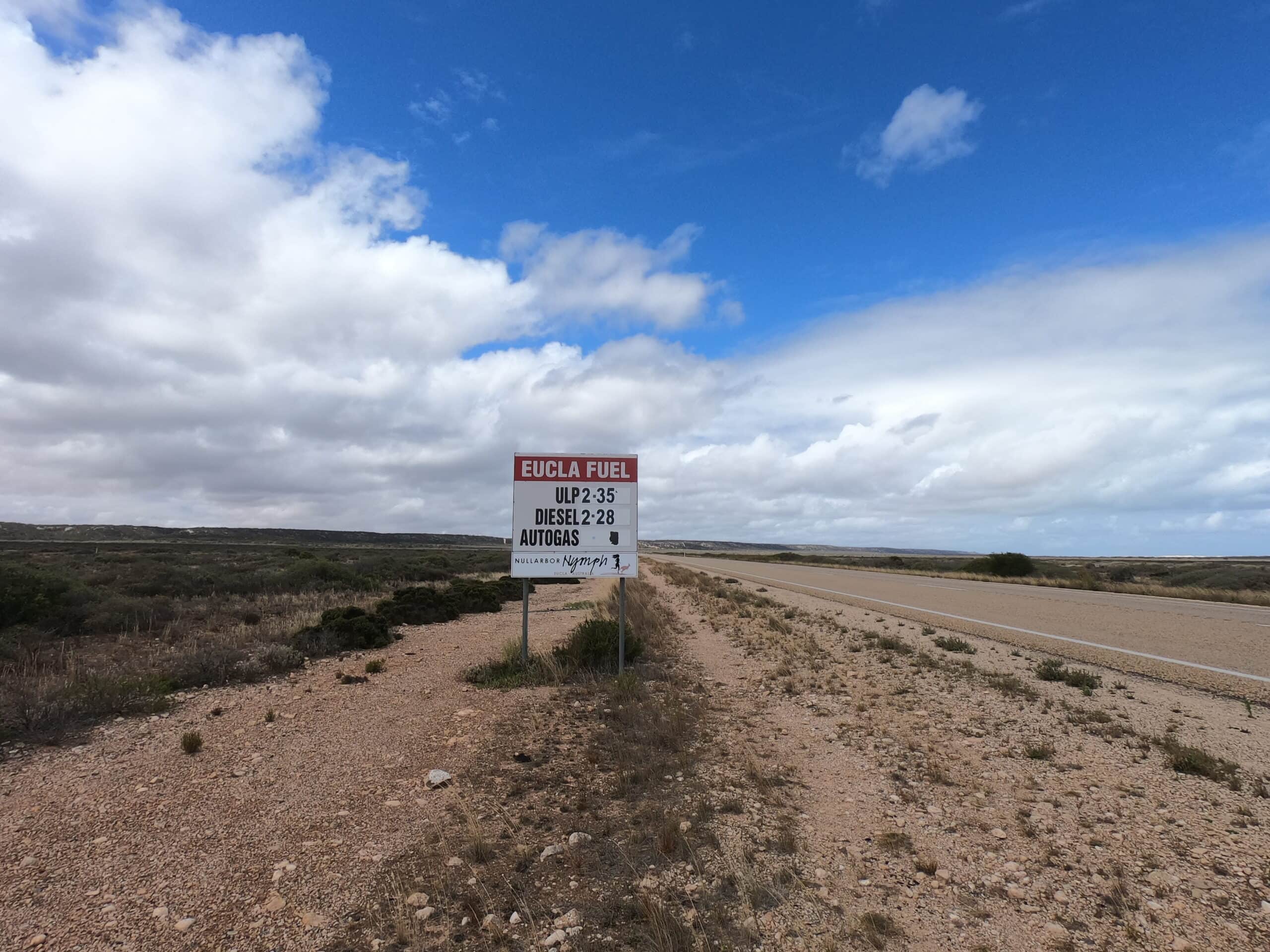
Motel and Hotel Choices
For those who prefer more comfort, cabins and basic hotels are available at most major roadhouses. Eucla, Nullarbor Roadhouse, and Border Village offer simple accommodations. Prices reflect the remoteness, so budget accordingly. Booking ahead during peak seasons is recommended to secure a spot. I have stayed at the Nullarbor Roadhouse on my previous journey. It was basic, clean and everything I wanted at that time…a bed
Freedom Camping: Rules and Best Practices
Understanding Local Laws and Regulations
Freedom camping along the Nullarbor can save money, but it comes with strict regulations. Check for designated free camping areas and avoid camping on private property, Indigenous land or near roadhouses without permission. Look for rest stops or roadside pull-offs marked for overnight stays.
Tips for a Successful Freedom Camping Experience
If you’re freedom camping, come prepared. Carry enough water, food, and fuel. Arrive early to find a safe spot and ensure you leave no trace—take all your rubbish. Be mindful of wildlife, especially at dusk and dawn. A self-contained setup, including a portable toilet, minimizes your impact. It can be very windy down this part of the world so be prepared.
Dingoes are wild animals. They have attacked in recent times in Karijini National Park and often on K’gari. Don’t feed the wildlife. Read my posts on 5 Top Travel Tips for Navigating the Unique Australian Wild Life

Fuel Stops on the Nullarbor: Planning Your Journey

Fuel planning is absolutely essential when embarking on a Nullarbor road trip, as fuel prices can vary significantly across the route. I started my journey by filling up in Norseman at $2.05 per litre, but prices steadily increased as I traveled east. The most expensive stop was at the Nullarbor Roadhouse, where diesel was a hefty $2.72 per litre. To manage costs and avoid being caught short, I carried two 20-litre jerry cans, which provided extra range and flexibility between stops. For those planning their refueling strategy, Yatala is generally the cheapest option for fuel across the Nullarbor.
If you’re traveling west to east, you’ll also find fuel at Ceduna and Penong, though these towns are closer to the journey’s end. By focusing on the more remote stops, you can ensure you’re well-prepared for the long stretches and avoid any unpleasant surprises at the pump.
From west to east, you’ll find fuel at:
- Norseman: Reasonably priced compared to further stops.
- Mundrabilla Roadhouse: Reasonably priced
- Caiguna and Cocklebiddy: Expect higher prices.
- Eucla: A good spot to refuel before Border Village.
- Nullarbor Roadhouse: a great stop to refuel and refresh. Very close to the Australian Bight Lookout.
- Yalata: A self-serve pump offered diesel at $1.91 per litre—97 km past Nullarbor Roadhouse. This is the cheapest by far
Driving conservatively and minimizing drag can improve fuel efficiency. Keep an eye on your speed, as headwinds and roof cargo can increase fuel consumption.
Safety Tips for Traveling the Nullarbor

Safety is paramount on this remote stretch. Here’s what to keep in mind:
- Carry Extra Supplies: Water, food, and fuel are non-negotiable.
- Plan for Emergencies: Mobile coverage is limited, so a satellite phone or personal locator beacon is advisable. I use the Garmin mini
- Watch for Wildlife: Kangaroo, emu, camel, dingo and wombat signs are common along the road. I have not seen any of these on my journey’s across the Nullarbor. especially at dusk and dawn. Drive cautiously.
- Weather Awareness: Even in summer, temperatures can be unexpectedly cold, especially at night. Pack warm clothes and bedding.
- Check Road Conditions: Stay updated on any closures or detours, particularly in adverse weather.
Unique Experiences Along the Nullarbor
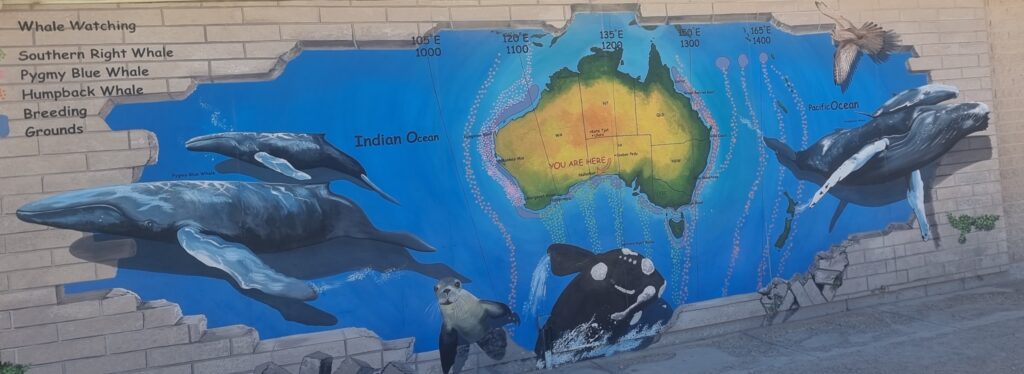
The Nullarbor isn’t just a road trip—it’s an adventure. Make time for these highlights:
- Whale Watching: Stop at the Head of Bight Lookout for a chance to see whales (seasonal). For a free view, check spots 10-20 km outside Border Village.
- Time Zone Changes: You’ll cross two time zones traveling west to east, losing time as you go—plan your stops accordingly.
- Scenic Lookouts: Pull over and soak in the vastness of the plains.
The Nullarbor Emergency Airstrips (aka the road!)
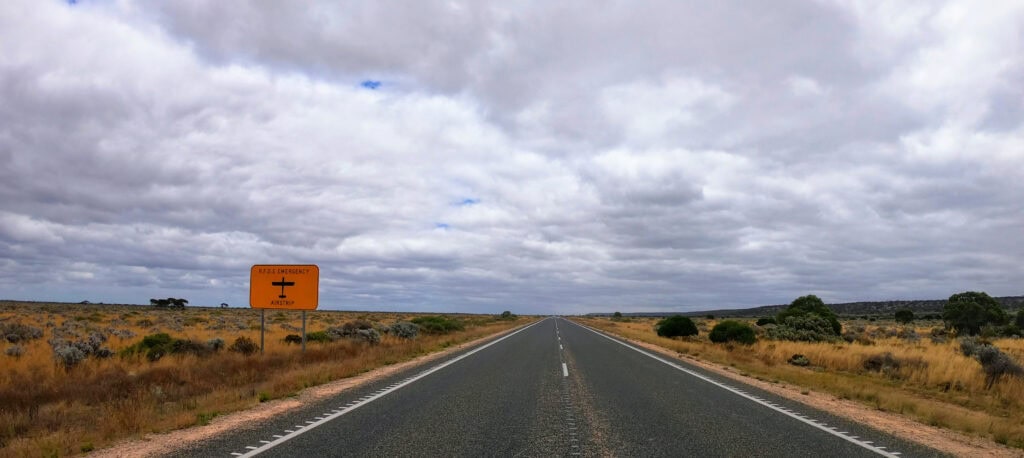
The Nullarbor Plain is more than just a vast and iconic stretch of Australian wilderness—it also serves as a vital lifeline for remote communities. In some sections, the highway doubles as an emergency airstrip for the Royal Flying Doctor Service (RFDS), a crucial organization that provides medical care to those living and traveling in Australia’s most isolated areas.
The RFDS operates a fleet of aircraft equipped to handle emergencies, transporting patients to hospitals and delivering essential healthcare services to areas far removed from medical facilities.
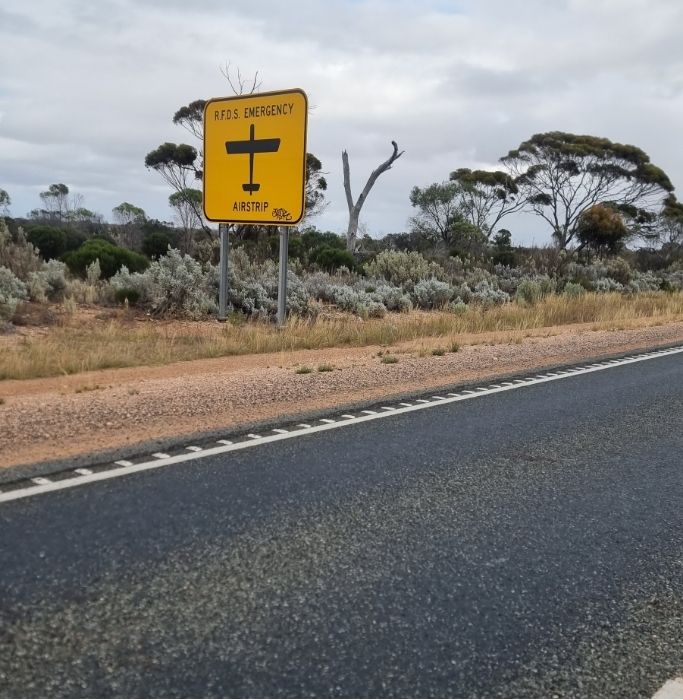
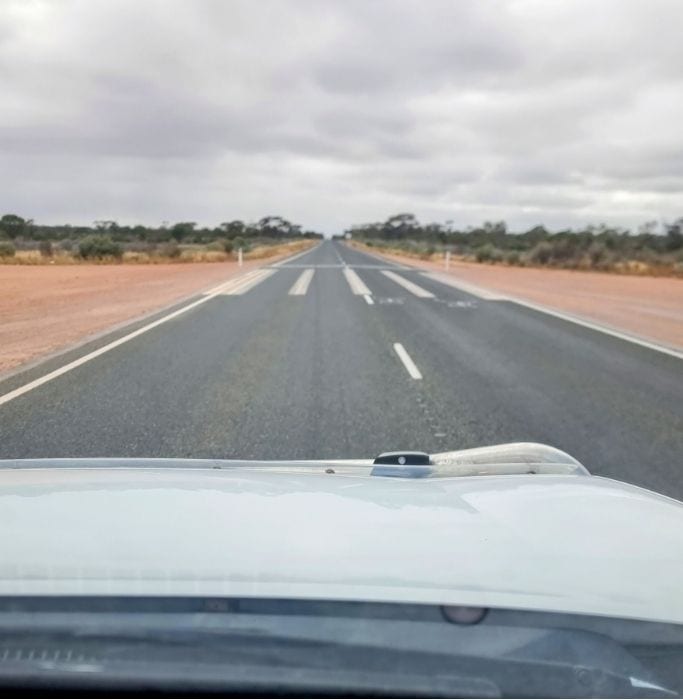
As you travel across the Nullarbor, you’ll notice signs along the highway advising that certain sections are designated airstrips. There are even markings on the road for pilots, clearly indicating the start and end points of the runway. This innovative use of infrastructure ensures that help can reach people quickly, even in the middle of the outback. The RFDS is a cornerstone of survival in these remote areas, offering reassurance to locals and travelers alike that medical assistance is never too far away, even in the most challenging and isolated environments.
Road Trains
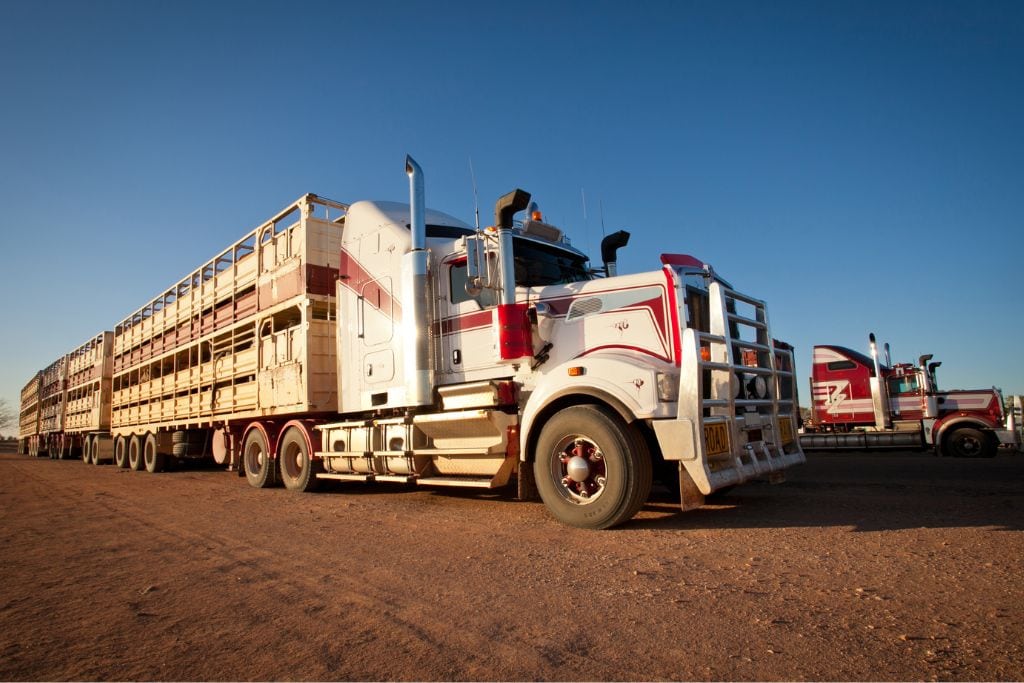
Road trains are the lifeblood of the Nullarbor, providing a vital link between Australia’s east and west and ensuring that supplies reach roadhouses, towns, and states along the route. These massive vehicles are called road trains for a reason—they can stretch up to 53.5 meters (175 feet) long, comprising multiple trailers hauled by a single prime mover. Their size and weight make them impressive to watch but also require extreme caution when attempting to overtake, as their length demands significant space and time to pass safely.
This particular road train was not on the Nullabor, but it shows their mammoth size. I have noticed as well when you are passing a large vehicle such as a road train, if the winds are high or gusty they can wobbly a bit on the road. Be patient when passing.
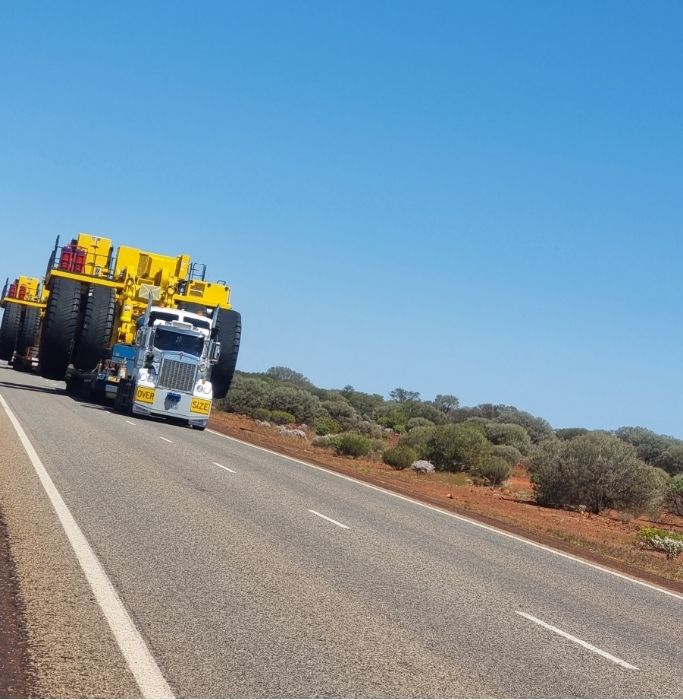
In addition to road trains, you may encounter wide loads traveling across the Nullarbor or anywhere in the outback. These oversized vehicles can take up both lanes of the highway, creating unique challenges for drivers. The extremely wide loads are always accompanied by escort vehicles (or safety cars) ahead and behind to warn oncoming traffic and ensure the load can navigate safely. When you see an escort vehicle, it’s a clear signal to slow down, give way, and follow their guidance to maintain safety for everyone on the road.
If you have a UHF put it on 40.
Together, road trains and wide loads highlight the scale and logistical complexity of traveling the Nullarbor Plain, where transportation plays a key role in connecting Australia’s far-flung regions.
The Longest Stretch of Road in Australia
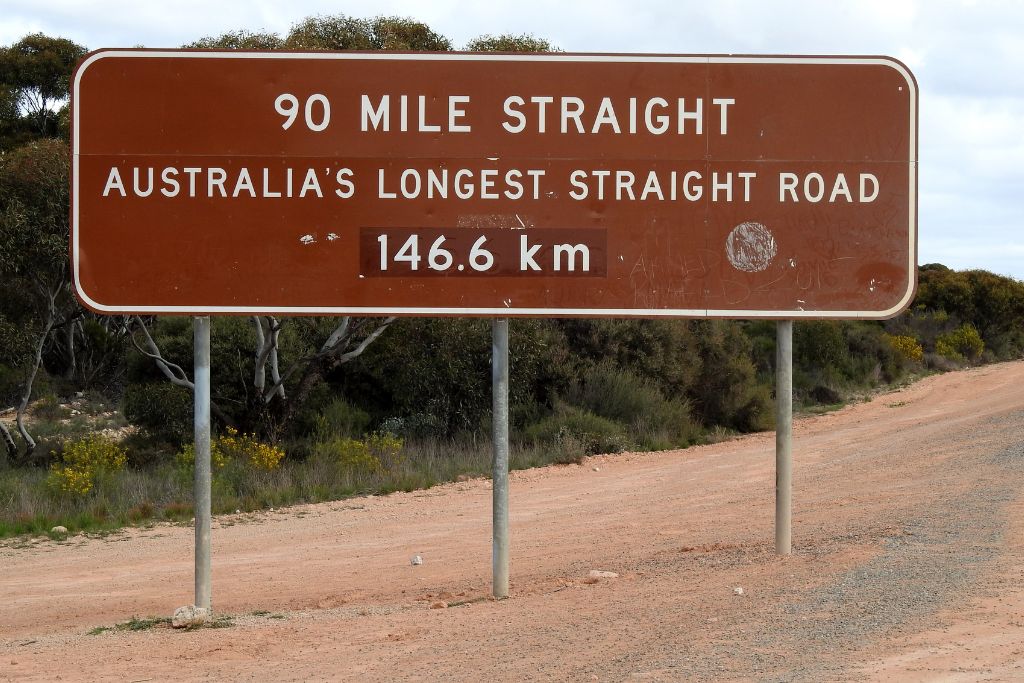
The Nullarbor Plain is home to one of Australia’s most iconic road trip experiences: the 90 Mile Straight, a stretch of road that holds the title for the longest straight section in the country. Spanning 146.6 kilometers (91 miles) without a single bend, this road tests your endurance and highlights the vast, uninterrupted beauty of the Australian outback.
Conclusion: Enjoying Your Adventure on the Nullarbor
Traveling the Nullarbor is a journey every Aussie should experience at least once. It’s a test of endurance and planning but rewards you with unforgettable scenery, unique encounters, and a true sense of adventure. With these tips for accommodation, fuel stops, and safety, you’ll be well-prepared to tackle this bucket list road trip.
Take your time, embrace the remoteness, and enjoy every moment of this iconic Australian drive.


